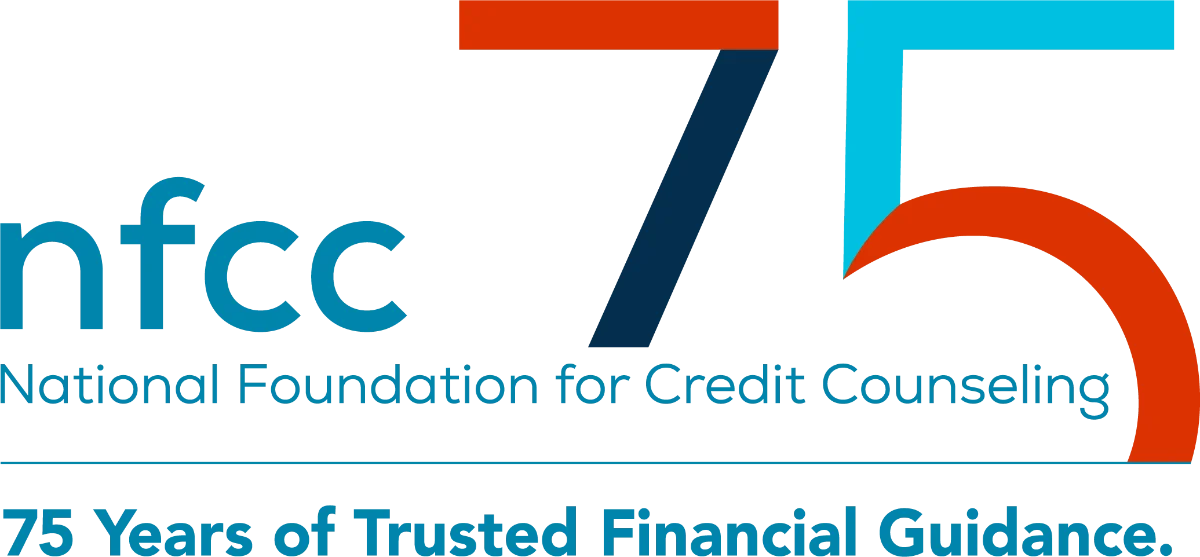Teach Your Teen Good Credit Habits
By Drew Kessler
As a parent to a teen, you have to watch your child go through some scary milestones.
What could be scarier than letting your teen drive for the first time? For some parents, seeing their teenager with a credit card is even more frightening!
Your teenager won’t be eligible to apply for their own card until they’re 18, but here at the National Foundation for Credit Counseling (NFCC), we recommend taking age-appropriate action to show your children the value of a good credit history and smart credit habits before that time comes.
1. Make them an authorized user
An authorized user is someone you add to your credit card account as an additional user. You don’t have to give your teen their own credit card when you go this route, but it still helps them in a major way.
As an authorized user, the history and payments on your credit card will show up on their credit reports. So if you’ve used the card for 10 years, your teen will suddenly have 10 years’ worth of credit history — which helps build up their credit scores.
2. Set specific credit card limits
If you decide your teen is trustworthy enough to use your credit card, consider letting them use it only for emergencies at first.
Then, once you see that they’re not abusing the card, give them a set spending limit and encourage them to only charge what they can fully pay off by the time the bill arrives. If they fail to pay the full balance they’ve accrued, you might take the card away for a period.
This helps you teach your teen that a credit card should only be used when you can pay off your full credit card balance each month. As a result, they can learn to avoid interest charges and stay away from unmanageable debt.
3. Review their spending together
When your monthly credit card statement is ready, sit down with your teen and review it together. By doing this, you can ensure they understand how to review their charges and read the card terms.
You can also teach your teen to recognize credit fraud on a statement. Your teen should learn some basic habits to protect their account from fraudsters, including:
- Identifying incorrect charges
- Contacting the bank to report errors or theft
- Using their chip or contactless pay when possible
- Keeping their credit card number private
- Shredding credit card receipts and paper statements
4. Calculate interest
For most credit card users, interest rates are confusing. Many don’t realize that interest rates on credit cards are ultra-high, especially when compared to most loans, and card users often underestimate how much it costs to let interest accrue.
To help your teen visualize how serious it is, find a credit card payoff calculator, like the one at Calculator.net, and go through several scenarios to show how much it costs to pay just the minimum balance each month.
For example, show your teen that if they owe $1,000, at an interest rate of 21% (the current average for credit cards), and they only pay $25 a month, it will take almost six years (70 months) to pay off the full balance and they’ll accrue $735 in interest charges.
5. Discuss the value of good credit
Teens tend to struggle with thinking long-term, especially when it comes to the consequences of mismanaging credit. Fortunately, you can have conversations with your teen to help them see the seriousness of the issue.
Make sure your teen understands that having bad credit scores can hurt their ability to achieve financial goals in the future. With bad credit, they may not be able to qualify for the following:
- Apartments
- Utility accounts
- Affordable car insurance
- Loans
- New credit cards
- Certain jobs
Your teen should also know that while it takes a few years to build good credit, missing just one credit card or loan payment can cost them as much as 100 points, undoing all of their hard work. Missed payments and other negative credit information will also stay on their reports for seven years or more.
6. Use your free resources
Luckily, there are free resources to help you and your teen as you go through this journey together.
Once your teen is an authorized user or has had their own credit account for at least six months, they can pull their free credit reports from AnnualCreditReport.com. You can also reach out to an NFCC-certified credit counselor to set up a meeting for you and your teen to discuss credit-building strategies, and go over any financial questions they may have.
Drew Kessler is Vice President of Marketing & Communications with the National Foundation for Credit Counseling.
Views expressed are the personal views of the author, and do not represent the views of the National Foundation for Credit Counseling, its employees, its members, or its clients.



